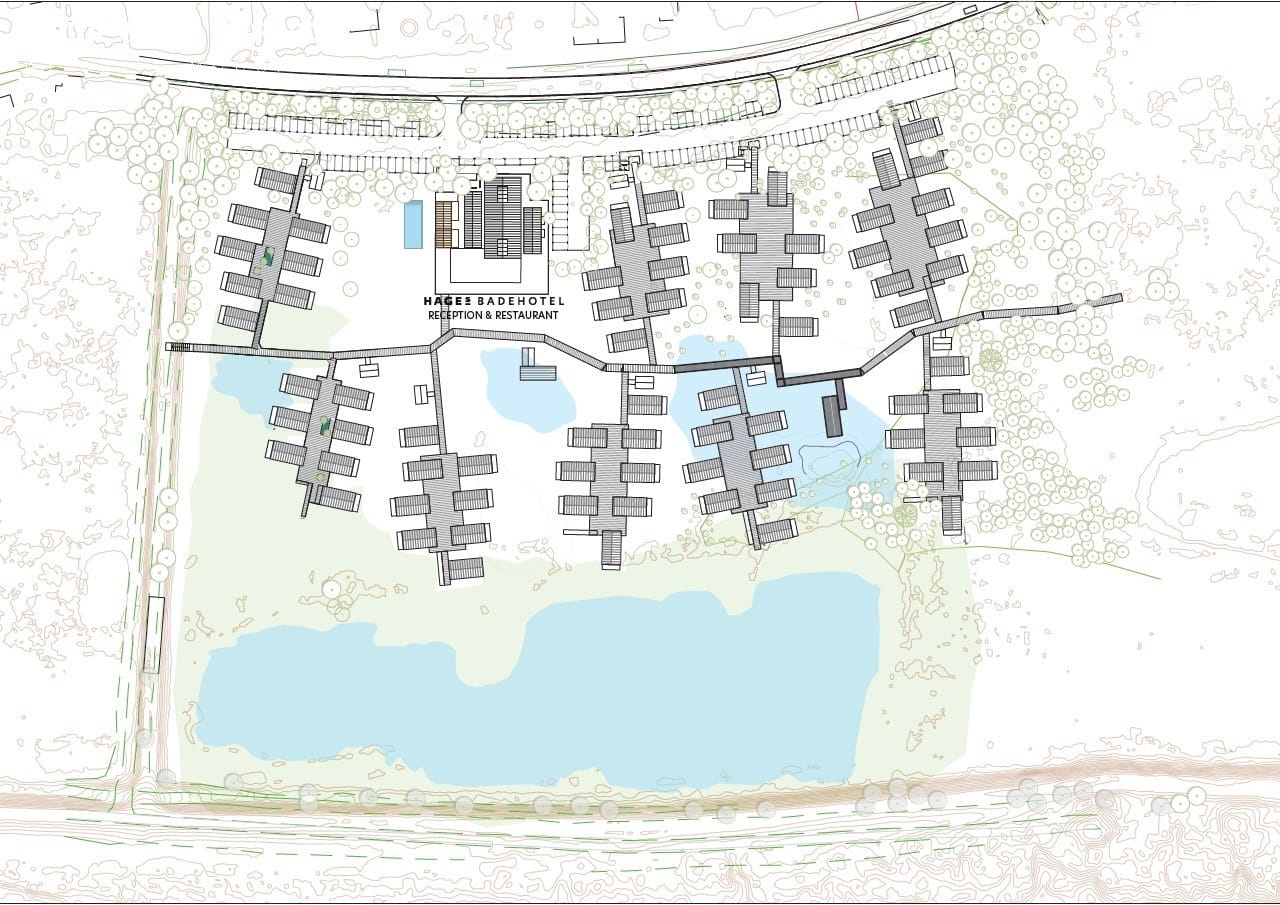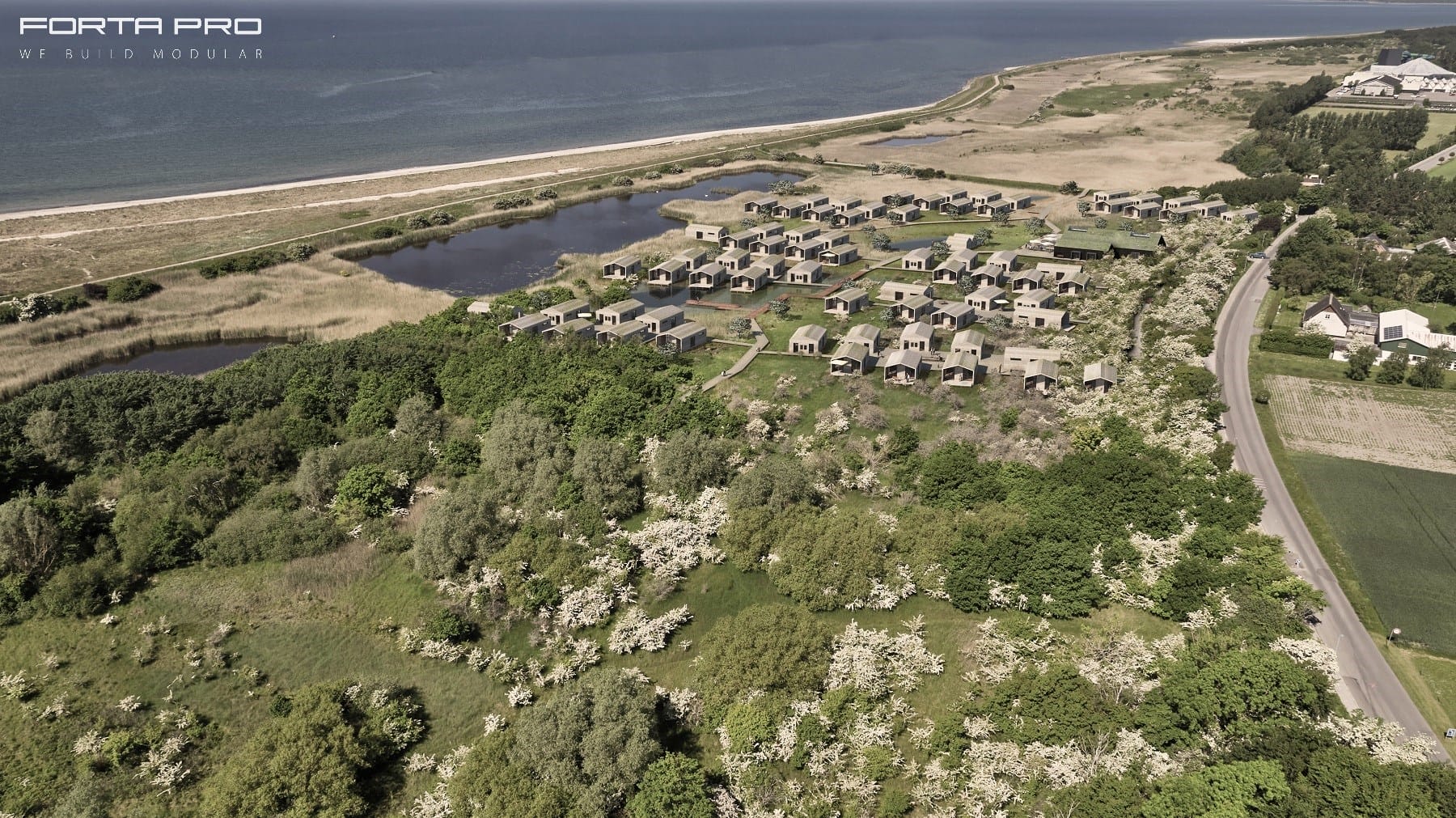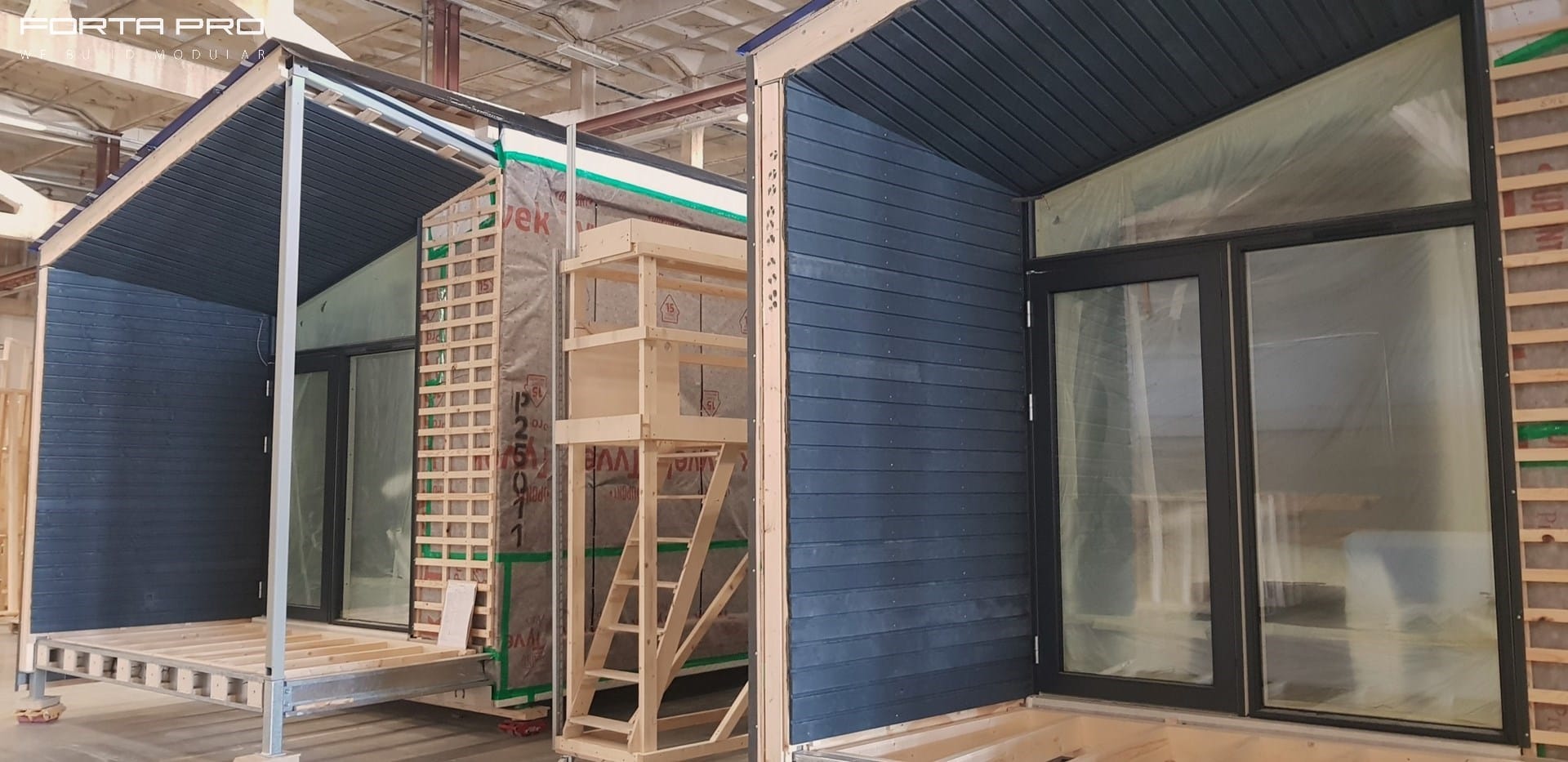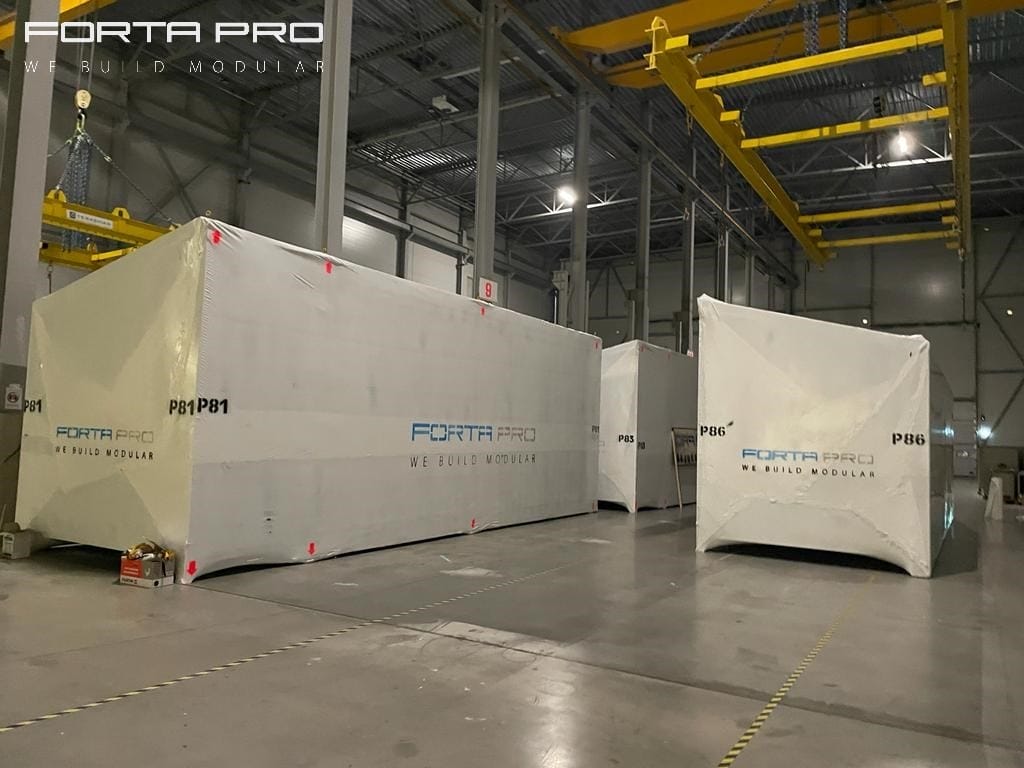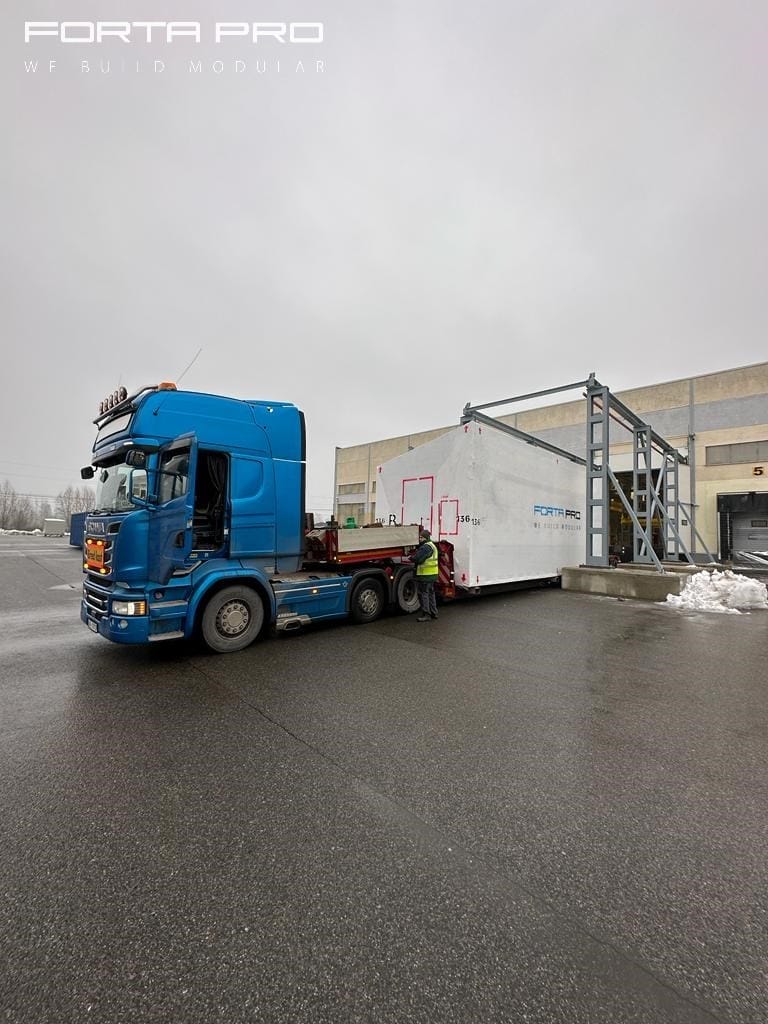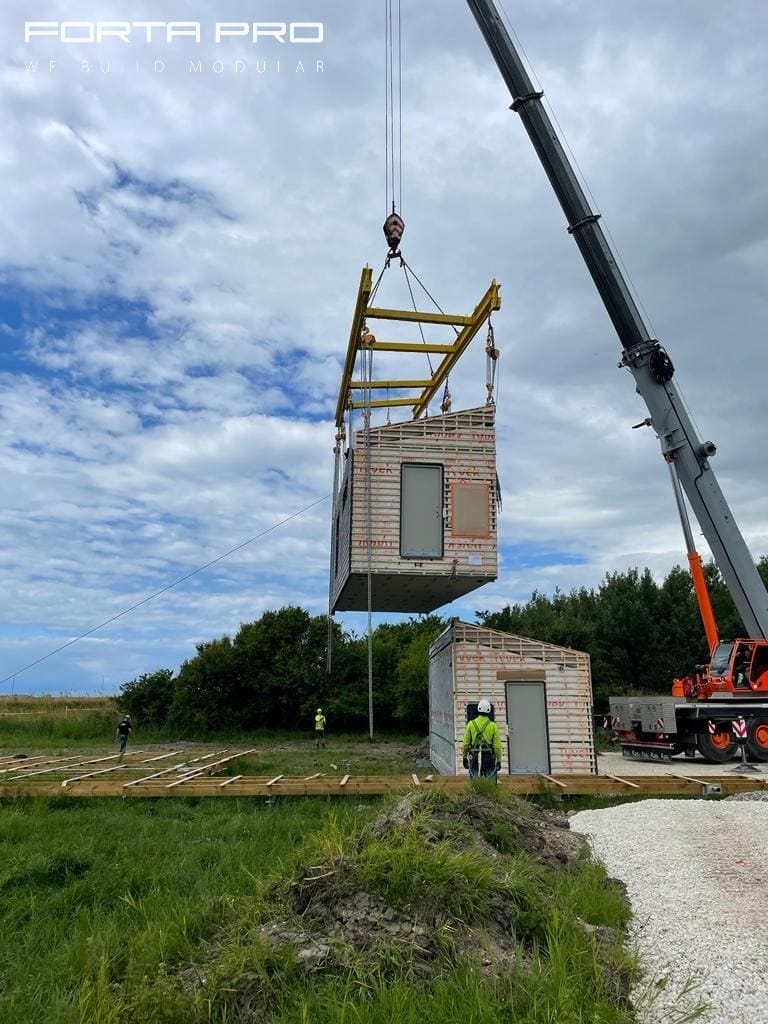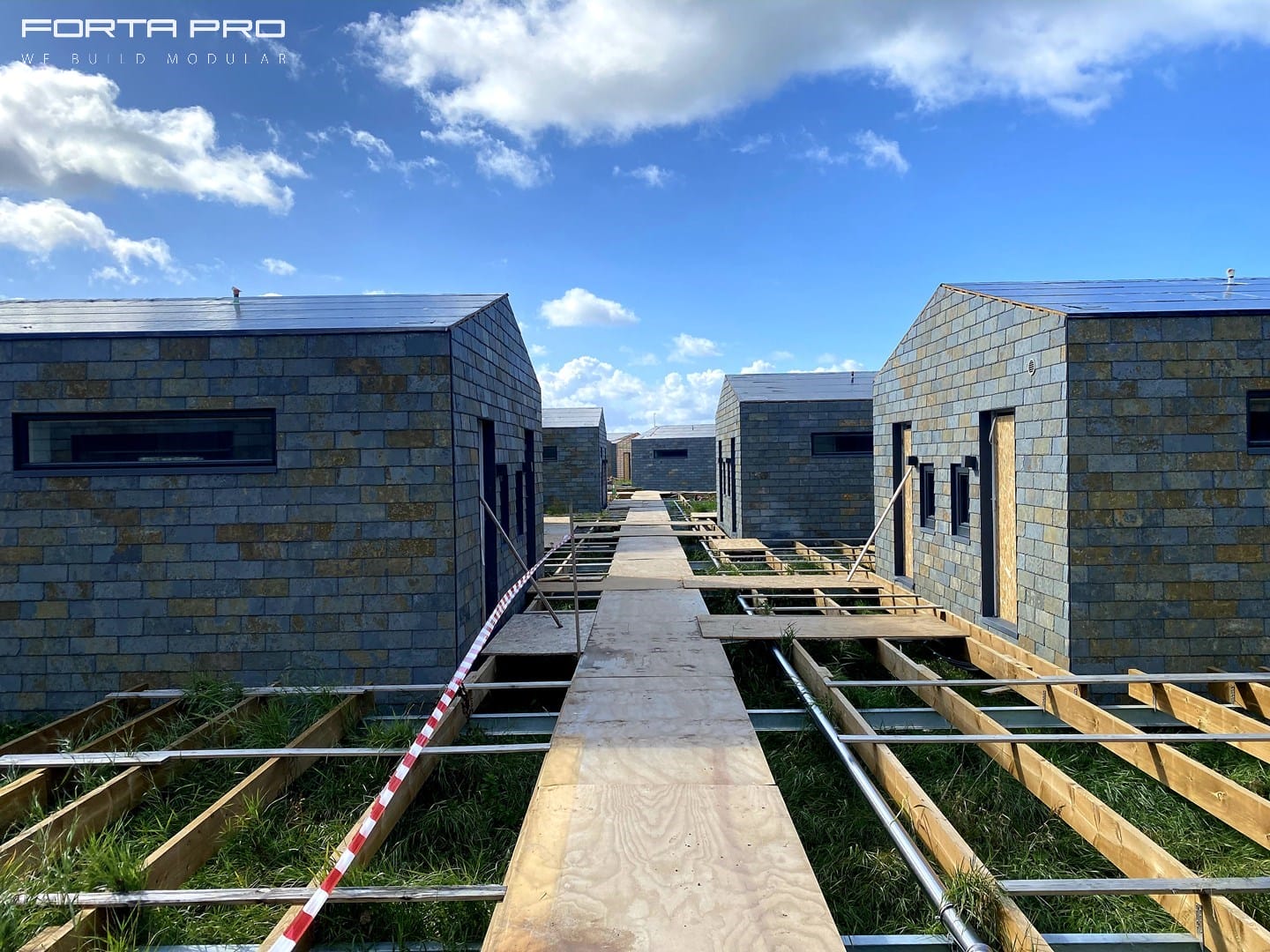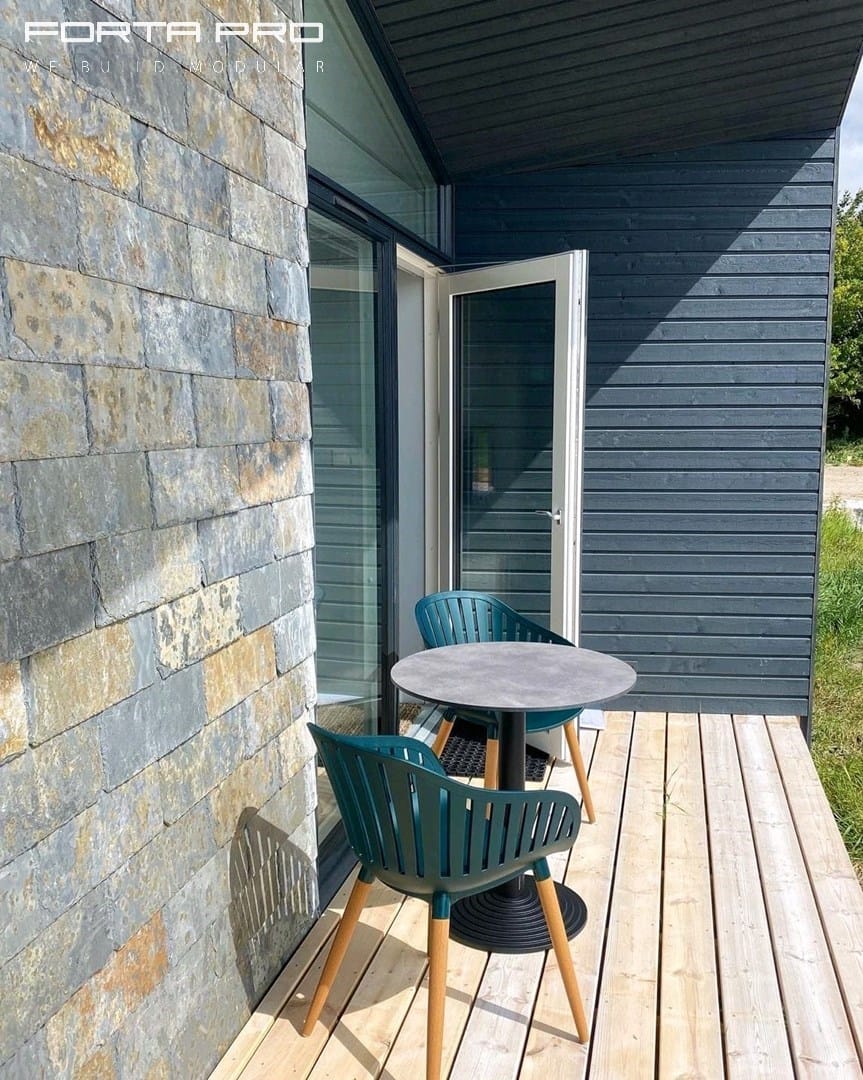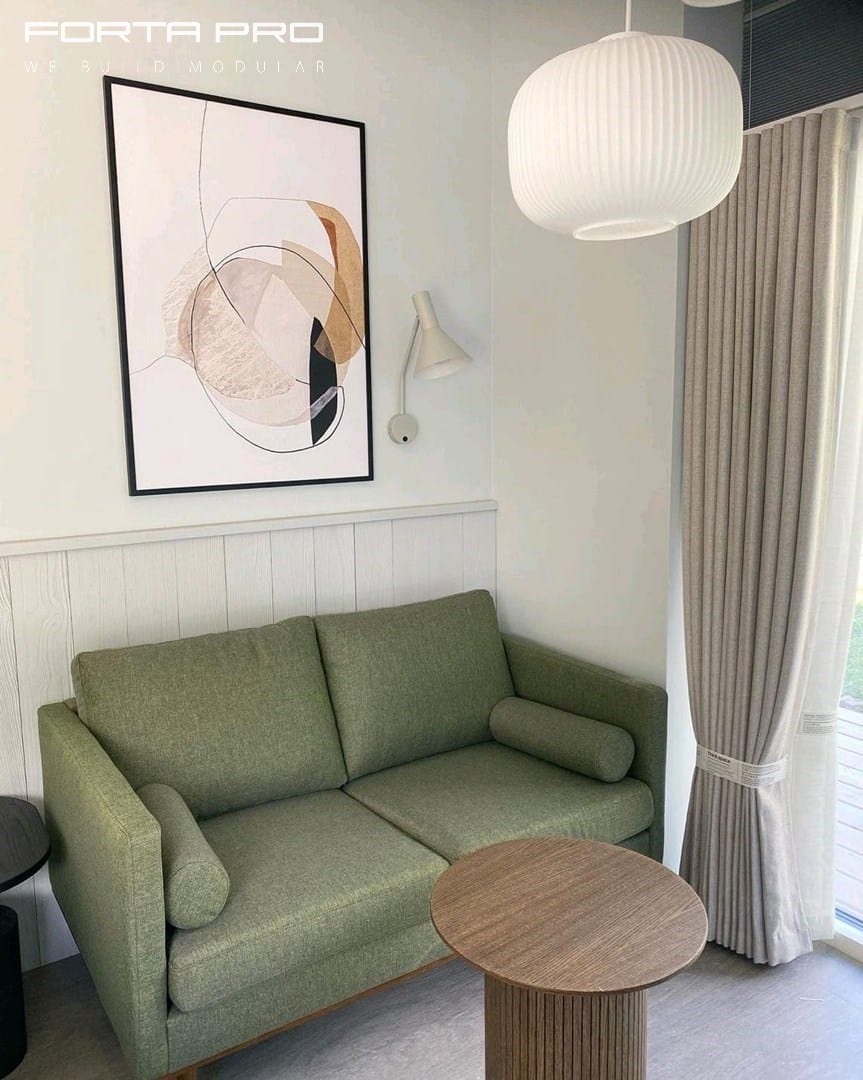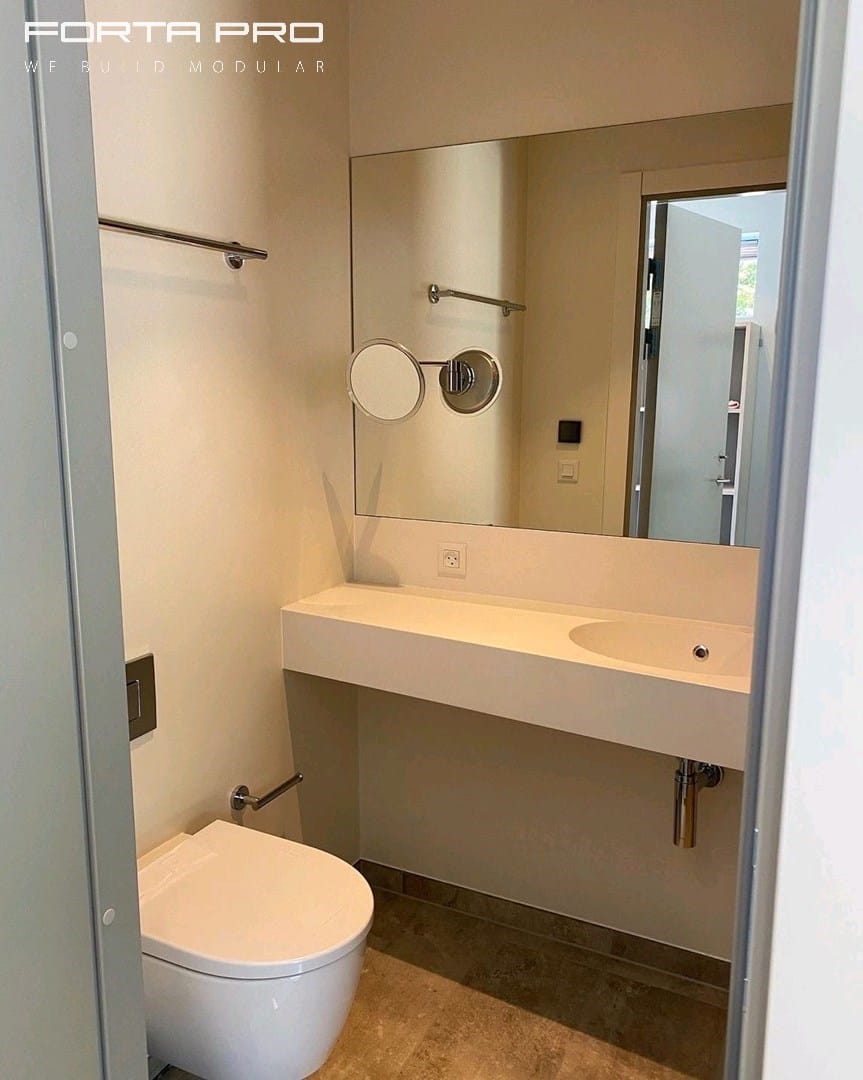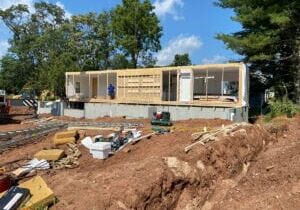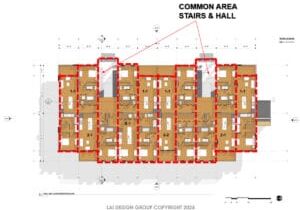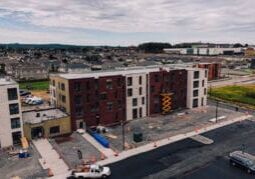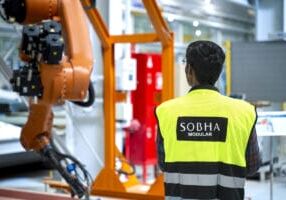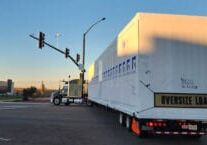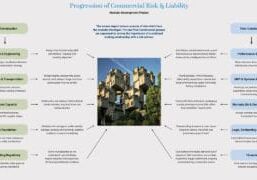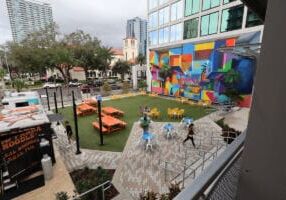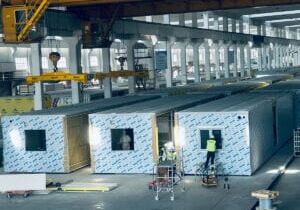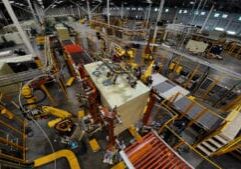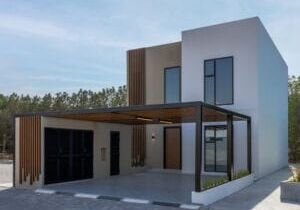Hage’s Badehotel – Case Study – Denmark
Hage’s Badehotel is a new, modern seaside hotel in Denmark providing great accommodation in beautiful & relaxing surroundings. Forta PRO is a world leading modular construction company, providing advanced state-of-the-art solutions for construction and expansion of apartments, healthcare solutions, hotels, student housing, rental apartments and more with minimal disruption to the operations of surrounding facilities.
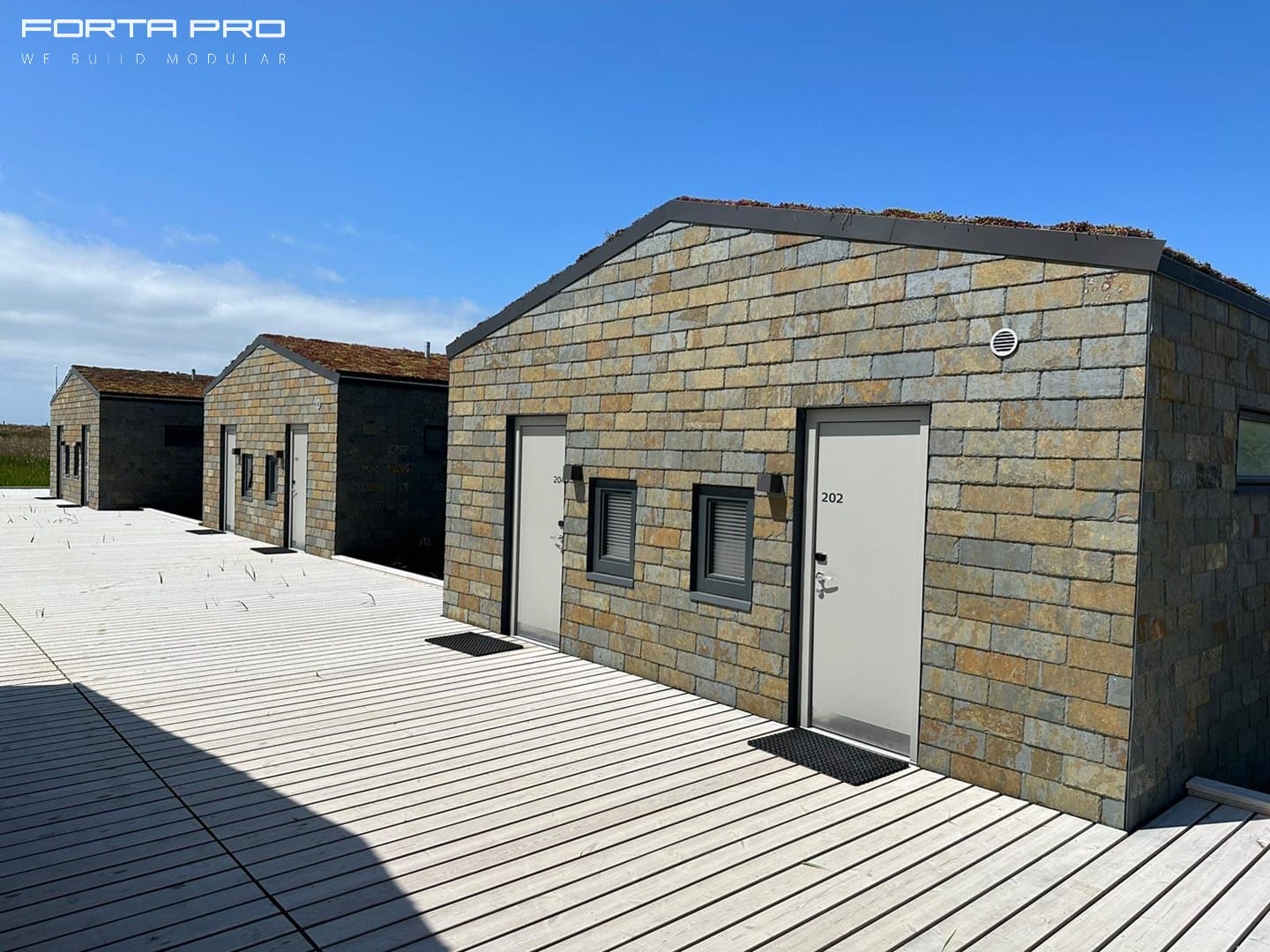
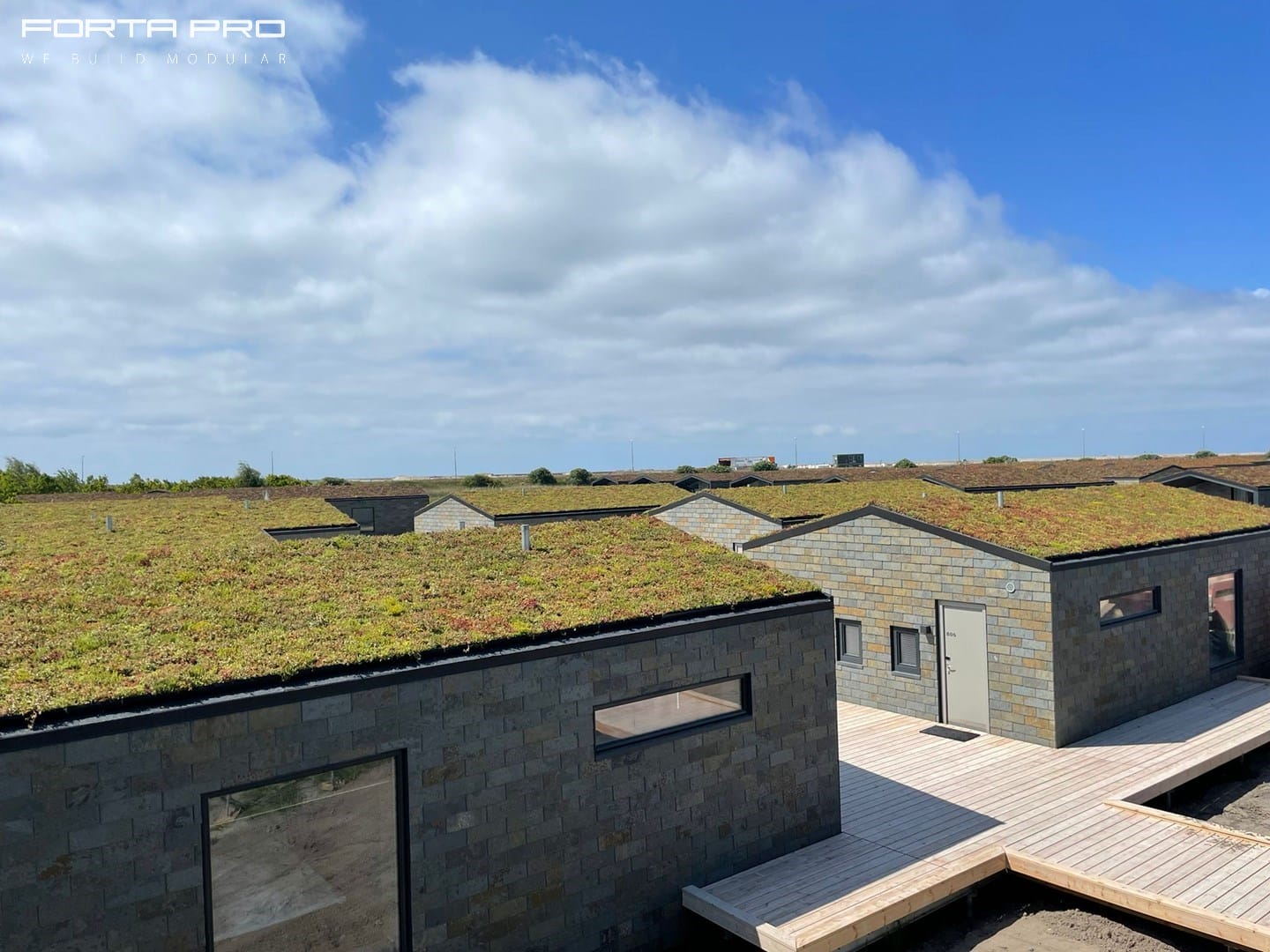
Forta PRO Modular project has been delivered undergoing complete cycle from design to production, delivery, and installation. In total, Forta PRO delivered 72 buildings, 144 modules, with 5,200 m2 of gross modular area. With final onsite completion in June 2023, it provides exceptional long-stay accommodation in a stunning and serene environment. The houses are thoughtfully constructed on pillars to preserve the natural surroundings and sustain the natural ecosystem. Several initiatives have been taken to preserve the area’s wildlife and to provide guests a hotel experience in unique surroundings. The property consists of a main building with reception, bar & breakfast restaurant.
Overview
Over the course of project implementation, we have implemented initiatives to protect the area’s wildlife and ensure a unique hotel experience for the guests of this long-stay hotel. The total time of onsite module installation was extremely quick allowing to minimize area disruptions and waste. One cabin house consists of two modules with pitched green roof to form either two single rooms or a service apartment. The modules were produced and delivered along with the terrace with the final terrace cladding installed onsite. The furnishings for the modules were installed by the client onsite, while all interior finishes along with sanitary appliances and wooden panelling on walls have been fully completed in the factory.
The visual design of the project should also be noted - Brazilian brick slates blend into the surrounding landscape and were fully preinstalled in the factory.
The modules of Hages Badehotel were delivered with complete internal finishing, including furniture, minimizing the need for on-site construction work to a minimum. Modular choice for this particular swampy area and solution with pile foundations has been essential to preserve the natural environment and reduce disruption.
Modules were delivered from Forta Pro factory located in Ventspils, Latvia which is near to Ventspils Port by vessel to the Danish port of Nakskov, just 30 minutes’ drive from construction site.
From Nakskov port to site modules were delivered by trucks. Considering that the modules of Hages Badehotel were delivered with complete internal finishing, including furniture there was little work to be done on site. As soon as modules arrive in Nakskov port installation team was ready to install 12-14 modules per day by mobile crane presenting an impressive progress on site after each delivery. Predictability and installation speed was crucial in this project do to the high water level which was demoted during the construction process.
How Has the Use of Offsite Technology Provided a Major Element in the Delivery of the Final Project?
The client is a returning client of Forta PRO, hence, his confidence in the advantageous aspects of modular technology led to a decision to implement construction of the project in modular technology. High volume of repetitive low-rise cabins allowed Forta PRO to reach high efficiencies in the production facility. The project featured only 4 module types, which allowed to streamline both - project technical design and production. Modular steel structure allowed to use the advantage of light steel weight structure to facilitate installation process and optimize pile foundations. Speed of installation allowed for a limited amount of site works, smaller involvement of subcontractors, hence, reduced number of required construction site equipment, containers, and site-related utility costs.
The project has received an overwhelming response so far, both from the end-users, who start to inhabit the cabins, as well as investors inspired by project concept, visual aesthetics, and functional layout design of the rooms. Currently, the project is being commissioned and is already booked up to 99%, which is a certain indicator of the success of the financial logic and concept behind the project. Another great achievement for the project is received recognition as one of the Top 25 newly launched beach hotel properties worldwide by The Times.
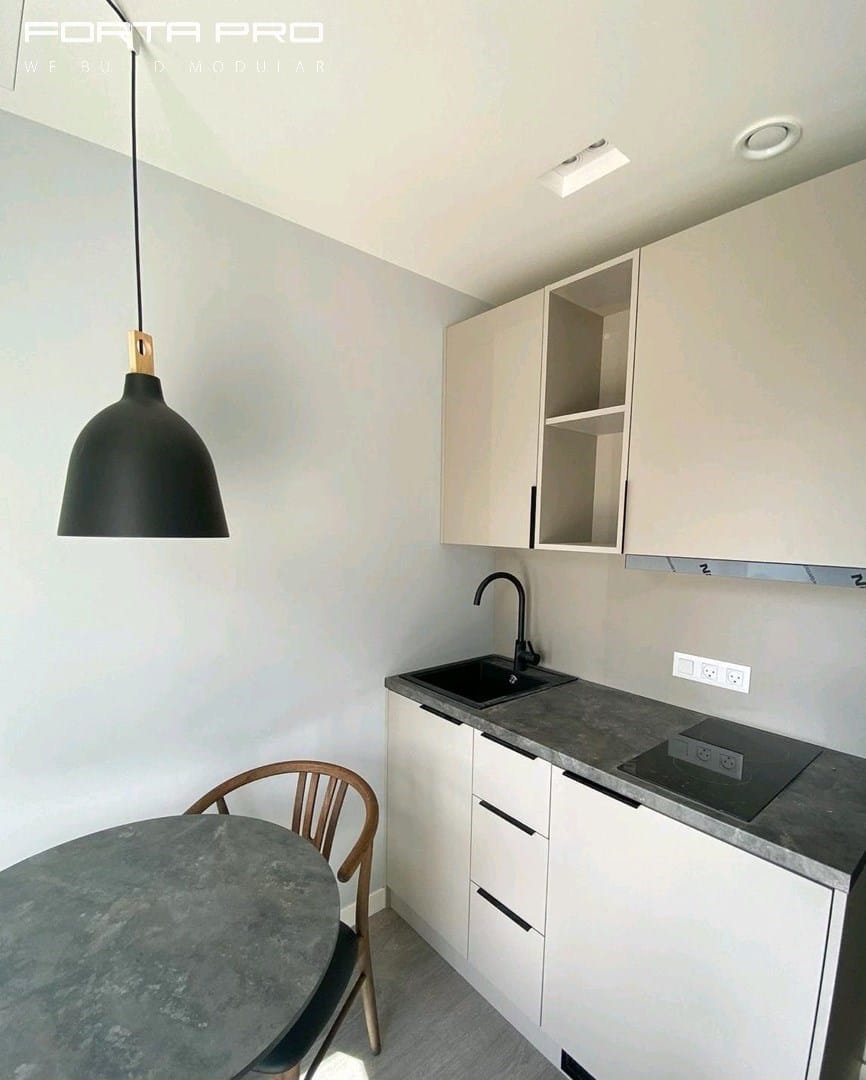
Innovation
Assembly speed - up to 12 module assembly per day.
As most of the work is completed in the factory under controlled conditions, the number of human resources at the site is significantly reduced, including risks related to H&S and quality affected by the weather.
Aviv Brosilovski, Forta PRO Business Development commented: “Utilizing MMC (Modern Methods of Construction) technologies enables construction works to be carried out in hard-to-reach areas or in locations where it is crucial to minimize the impact on the existing environment and reduce construction-related damage. Our usage of nature-friendly materials that fit well into the natural landscape gives the amazing outcome creating the place where we feel really close to nature creating inner peace and a desire to return. We look forward to delivering our next modular project!”
About Forta PRO
Forta PRO manufactures high standard modular units suitable for the construction of hotels, residential buildings, student accommodation, “built to rent” apartments, hospitals, clinics, bathroom PODs and many other applications. Modular construction methods allow for ecologically clean and sustainable buildings while saving energy and time with minimal disruption to the surrounding facilities operation.
Forta PRO can plan, design and build from scratch or expand existing facilities and can support customers with 120,000 m2 per year of module manufacturing in our European factories, quick and efficient.
More from Modular Advantage
AoRa Development Aims for New York’s First Triple Net Zero Building Using Modular Methods
More cities are providing funding for newer infrastructure projects as long as they meet sustainability requirements. This is how modular can fit the bill, thanks to its lower waste production.
Developers and Designers: Lessons Learned with Modular Design
Modular construction is attractive to many developers because sitework and module construction can occur simultaneously, shortening the schedule and reducing additional costs.
UTILE: Putting Modular Building on a Fast Track
In Quebec, UTILE is taking the lead in creating affordable modular buildings to help decrease the student housing shortage. During the process, the company discovered what it takes to make the transition to modular building a success.
Sobha Modular Teaches Developers How to Think Like Manufacturers
With its 2.7 million square foot factory in UAE, Sobha Modular is bringing both its high-end bathroom pods to high-end residences to Dubai while developing modular projects for the U.S. and Australia.
RoadMasters: Why Early Transport Planning is Make-or-Break in Modular Construction
In modular construction, transportation is often called the “missing link.” While it rarely stops a project outright, poor planning can trigger costly delays, rerouting, and budget overruns.
Navigating Risk in Commercial Real Estate and Modular Construction: Insights from a 44-Year Industry Veteran
Modular projects involve manufacturing, transportation, and on-site assembly. Developers must understand exactly what they are responsible for versus what they subcontract. Risk advisors should research the developer’s contractors, subcontractors, and design-build consultants—especially the modular manufacturer.
Art²Park – A Creative Application of Modular and Conventional Construction
Art²Park is more than a park building—it’s a demonstration of what modular construction can achieve when thoughtfully integrated with traditional materials. The use of shipping containers provided not only speed and sustainability benefits but also a powerful structural core that simplified and strengthened the rest of the building.
Building Smarter: A New Standard in Modular Construction Efficiency
Rising material prices, labour shortages, expensive financing and tightening environmental rules have made conventional construction slower, costlier, and more unpredictable. To keep projects on schedule and within budget, builders are increasingly turning to smarter industrialized methods.
Resia: Breaking All the Rules
Resia Manufacturing, a division of U.S.-based Resia, is now offering prefabricated bathroom and kitchen components to industry partners. Its hybrid fabrication facility produces more precise bathroom and kitchen components (modules) faster and at lower cost than traditional construction. Here’s how Resia Manufacturing does it.
How LINQ Modular Innovates to Bring Modular To The Market in the UAE and Beyond
LINQ Modular, with an office and three manufacturing facilities in Dubai, is a modular firm based in United Arab Emirates. The company is on a mission: to break open the housing and construction markets in the Gulf Cooperation Council (GCC) area with modular.

